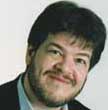
Jeff Jacoby
Why the 9/11 fund was a mistake
http://www.NewsAndOpinion.com | The fund established by Congress to compensate the families of those who died on Sept. 11 closed its books earlier this year. According to Kenneth Feinberg, the special master appointed to administer the fund, all but a handful of the families eligible to apply for an award did so. All told, 2,878 families received tax-free payments averaging nearly $2.1 million apiece. Payments were also made to another 2,675 people, mostly rescue workers, who were injured that day at Ground Zero or the Pentagon.
All told, the government disbursed nearly $7 billion — roughly $1 billion for those who were injured and $6 billion for the families of those who died.
Feinberg, an experienced arbitrator and former chief of staff to Senator Edward Kennedy, has been widely praised for the skill and efficiency with which he administered the fund, and for the sensitivity he brought to the wrenching job of meeting with grieving families and putting a dollar amount to the lives of their loved ones. Those who know him describe him as a man of sincerity, intelligence, and goodwill. So when he says that the federal payout was a "good idea" — as he did during a recent forum at the John F. Kennedy presidential library in Boston — it might seem reasonable to take his word for it.
But the government fund was not a good idea. And Feinberg is too honest not to acknowledge its gaping problems.
To begin with, there was the injustice of having the feds bestow multimillion-dollar jackpots on the Sept. 11 families when countless other families struck by tragedy get nothing. Asked at the Boston forum why the death of an employee in the World Trade Center is more deserving of compensation than the death of a hurricane victim in Florida, Feinberg acknowledged that "from the perspective of the victims," it isn't. There was no satisfactory way, he confessed, to answer the letters that came from other shattered families:
"Dear Mr. Feinberg, my son died at Oklahoma City. Where's my check?"
"Dear Mr. Feinberg, my daughter died in the African embassy bombings in 1997 in Kenya. How come I'm not eligible?"
"Dear Mr. Feinberg, my wife died in the first World Trade Center attack in 1993, committed by the very same people. How come I'm not getting a check?"
"I even got a letter," he recalled, "from somebody who said, `Mr. Feinberg, my husband last year saved three little girls from drowning in the Mississippi River, and then he went under and drowned: a hero. Where's my check?"
But the sheer unfairness of the federal fund wasn't the only thing wrong with it. With so much money at stake, the program predictably caused feuds and bad blood.
"You would get situations like this," Feinberg said. " `Mr. Feinberg, I'm the brother of the victim. Don't let my sister get a nickel. The victim hated his sister, trust me.' Then the sister comes in. `Is my brother spreading rumors. . .? My [deceased] brother and I loved each other.'
"Or: `Mr. Feinberg, I'm the biological parent of my son who was killed. Don't you dare give the fiancee any money. That marriage was never going to take place.' Then the fiancee comes in. `We were going to be married on October 11th.' And you go back to the biological parent. `They were going to be married October 11th. You threw a shower for them. You said you were gaining a daughter, not losing a son.' `Yeah, but on Sept. 10, my son told me it was off.' "
Then there was the issue of private charity.
Awards from the federal compensation fund were reduced by the amount of any insurance proceeds the families received (in effect punishing the relatives of victims who had been responsible enough to plan ahead). Yet they were not reduced to offset any charity the survivors collected. Which meant, in many cases, that the government ended up paying a fortune to people who had already collected a fortune from private donors. USA Today reported in 2002 that relatives of New York police officers received an average of $929,000 in charitable funds. The families of firefighters and ambulance crews got $1,037,000. Those gifts, too, were tax-free.
An estimated $2.8 billion was donated by millions of Americans following the 9/11 attacks. Billions more came pouring in as in-kind goods and services — everything from food and air travel to financial planning and slots at children's camps. Well before Congress created the federal compensation fund, individual donors and private charities were stepping up to the plate, demonstrating their compassion with the extraordinary generosity that is so often the hallmark of ordinary Americans. There was no reason for the government to get involved.
"When you really look at all the problems you confront with a program like this," Feinberg said in Boston, it's "a fair question whether any of this is a good idea. . . . I don't think people should . . . assume that this is a precedent that we're going to repeat."
Let's hope he's right.
Like this writer's work? Why not sign-up for the daily JWR update. It's free. Just click here.
Jeff Jacoby is a Boston Globe columnist. Comment by clicking here.


